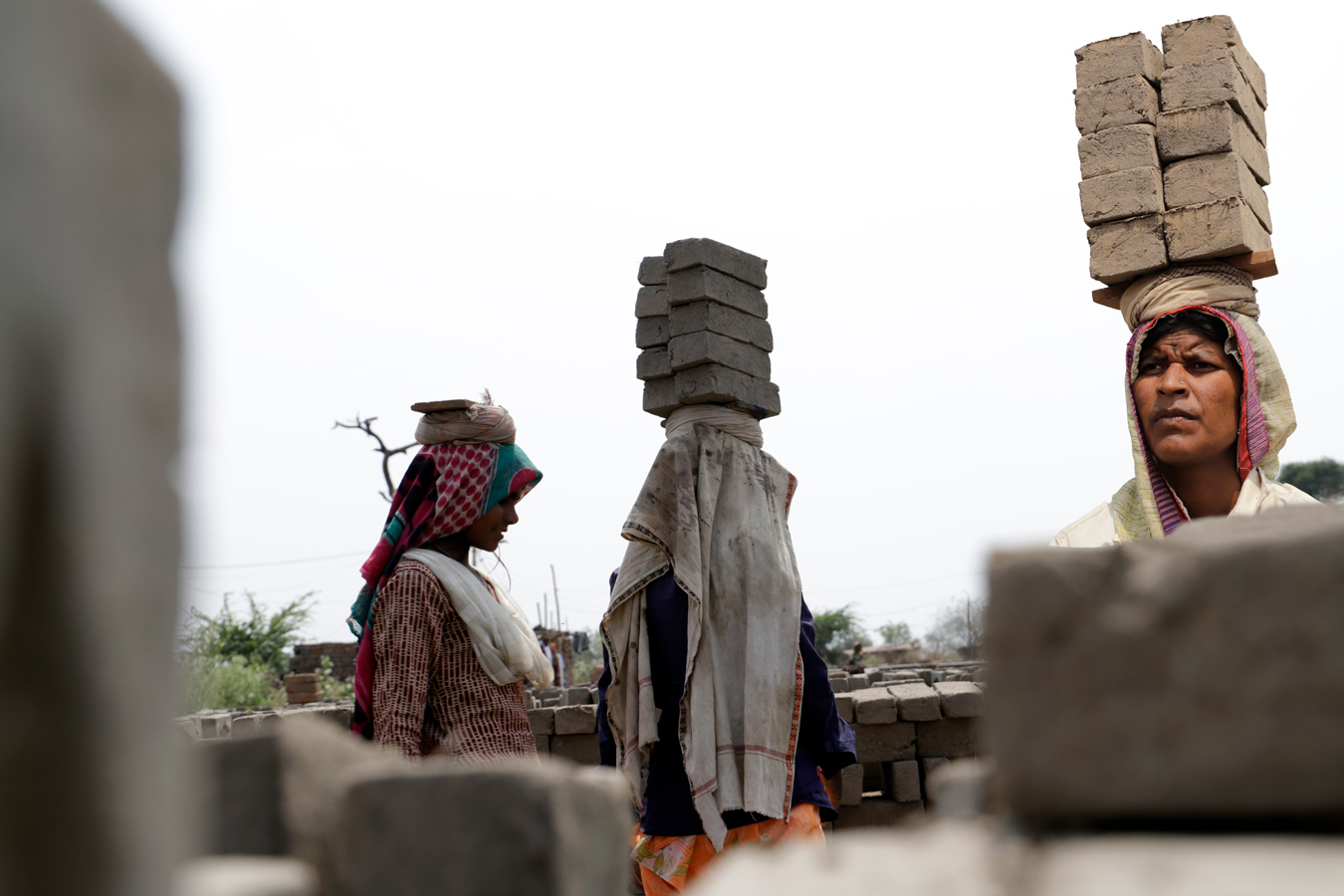Elections 2024: Migrant workers, transgenders face barriers to voting

Millions of migrant workers and transgender individuals confront barriers to voting (Photo: Media India Group Aman Kanojiya)
India is readying for the upcoming general elections with a record 968 million eligible voters in what is clearly the largest democratic exercise in the world. The process, to be covered in an unprecedented seven phases spread over nearly eight weeks, is set to commence in a matter of days as the first phase of voting takes place on April 19.
To encourage participation in the elections and to drum up voting, the Election Commission of India, which conducts and supervises all elections in the country, has been running an aggressive public awareness campaign urging voters, especially the first-timers, to turn out in big numbers and exercise their fundamental right.
But despite these campaigns and propaganda, not all citizens would be able to vote as many marginalised communities find themselves excluded from the entire electoral process. Two of the most vulnerable groups amongst these marginalised sections are migrant workers, especially female, and transgender and queer persons. Both of these groups continue to face multiple barriers to voting accessibility, raising critical questions about the inclusivity and equity of the elections.
Many female workers, who have migrated from other parts of India in search of employment opportunities, find themselves unable to cast their votes. Sudha Sharma, a construction labourer who migrated from Bihar, exemplifies this predicament as she struggles to recall when she had last participated in the electoral process. “It is disheartening that I may not be able to vote in the upcoming general elections. As a labourer in Delhi, the journey back to Bihar would cost us INR 3000-4000, which is beyond our means,” Sharma tells Media India Group.
“Our workplace serves as our permanent residence, leaving us with no viable means to vote. The government should have addressed this and offered an alternative solution,” she adds.
During every election, be it for the Parliament, the State Assemblies or even the local bodies, migrant workers find themselves grappling with the harsh reality about their diminished civic rights. The absence of provisions for remote voting perpetuates their marginalisation, leaving them on the side-lines of democracy.
“Why should I incur the expense of INR 4,000 just to return to the village for the sole purpose of casting my vote? As migrant labourers, we find ourselves disenfranchised by the current voting system, which lacks provisions for remote voting. If such a system were in place, allowing us to vote by mail, would significantly enhance our participation in the democratic process. It is disheartening to see our voices silenced simply because of logistical barriers,” Veema Devi, a migrant worker tells Media India Group.
“Every election season, we are faced with the dilemma of choosing between exercising our civic duty and meeting our basic livelihood needs. The cost of travel, coupled with the loss of wages during the journey, imposes a significant burden on us,” she adds.
“We are left questioning the fairness and inclusivity of a system that fails to accommodate the diverse realities of our lives as migrant workers. Enabling remote voting would not only empower us to contribute to shaping our collective future but also demonstrate a commitment to upholding the principles of democracy, where every voice matters, regardless of geographical location,” Devi adds.
According to the last Census, conducted in 2011, India had about 450 million internal migrants, an increase of 45 pc from the previous census conducted in 2001. Of these 450 million migrant workers, as many as 70 pc were women.
The exclusion of migrant workers from voting has not gone unnoticed and various NGOs have become involved in trying to get them their basic right.
“The only way to include migrant workers as voters in India’s electoral process is to introduce a postal ballot system for them,” Sudhir Katiyar, founder of Centre For Labour Research and Action, that works closely with migrant workers, tells Media India Group.
Though postal ballots have long been in existence in India, currently only specific categories of individuals are eligible to use them. These include individuals holding declared electoral offices, members of the armed forces, government employees and their spouses and those on election duty.
In December 2022, the ECI proposed Remote Voting Machines (RVMs) to facilitate voting for migrant workers outside their home constituencies. However, this initiative was abandoned in April 2023 due to objections from political parties consulted by the EC.
It is not just the migrant workers that feel left out of elections. Many transgender individuals also find themselves ineligible to vote due to a lack of proper documentation. Kushi Meer, a transgender woman, from Srinagar, is keen to vote, but has failed to do so due to numerous barriers. “I wanted to cast my vote, but I need my voter ID to reflect my gender identity. To do so, I have to register and provide a government document with my chosen gender and name. But I don’t have any such document. Even my Aadhaar card reflects my gender-assigned at birth and my old name,” Meer tells Media India Group.
The government has initiated steps to help the transgenders overcome this hurdle. In November 2020, the Ministry of Social Justice and Empowerment (MSJE) launched a portal aimed at providing transgender individuals with a comprehensive platform to obtain an ID based on their self-perceived gender identity, in compliance with the Transgender Persons (Protection of Rights) Act, 2019. But even four years later, the process is yet to make any impact on the ground due to bureaucratic delays, say the activists.
“The process is incredibly slow, plagued by official delays, gender bias, limited digital access, and a lack of sensitivity among administrative staff. While it is supposed to take no more than 30 days, for many, it stretches from four months to a year,” Navneet, a transwoman living in Jammu, tells Media India Group. But as she did not give up, she finally has her credentials, making her eligible to vote this year. Navneet is thrilled over her achievement.
“I received my card after years of waiting, the prolonged wait tested my patience, but I am relieved to have it now. It is a small victory, but it represents a significant step towards recognition and acceptance of my identity,” she adds.
Cases like Navneet may exist, but there is a significant proportion of the population that remains outside the electoral cycle due to the current voting system’s inadequacies, such as the lack of provisions for remote voting and barriers to obtaining proper documentation. The struggle for inclusivity and empowerment in India’s democracy is far from over, as the cases of Meer and Sharma indicate.











